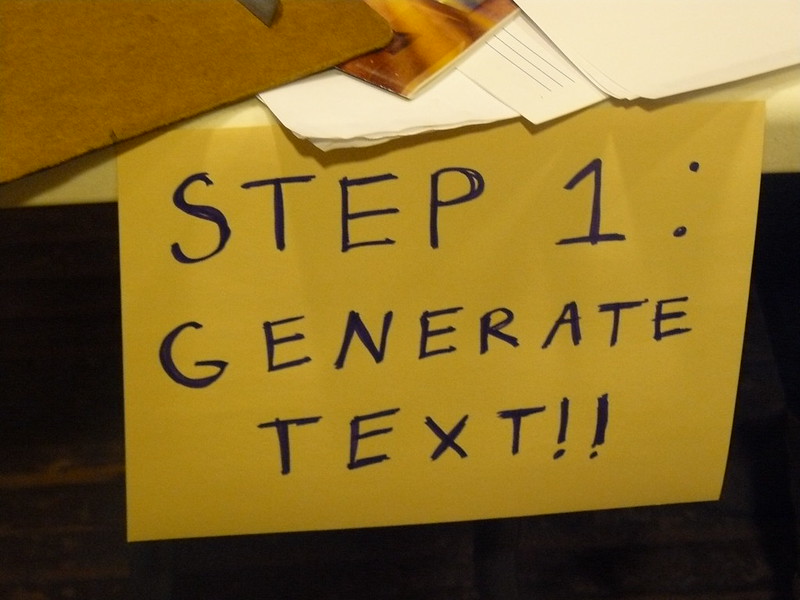
Understanding the term “Education Narrative”
Read and write before class on Monday (aka “homework”):
- Read “The Memory of My Grandmother” (City Tech student essay) by Anita Jiang. Remember, this is in a longer document–you only have to read the two-page essay (pp 3-4)!
- Read “Chapter 7” from the Narrative of the Life of Frederick Douglass by Frederick Douglass. This assignment is 2,464 words–roughly 5 pages long, so be sure to read over the weekend, not Monday right before class starts!
During class on Monday, we will:
- Reread and annotate “The Memory of my Grandmother” by Anita Jiang, using Bunn’s reading questions on a worksheet.
- Think about Jiang’s Technique: Choose one technique that Jiang used in her essay to bring you into her story. Was it effective? Why or why not?
- Reread and annotate “Chapter 7” by Frederick Douglass, using Bunn’s reading questions.
- Think about Douglass’ Technique: Choose one technique Douglass used to get his ideas across. Was it effective? Why or why not?
- Be sure to write your name/date at the top of the worksheet and turn it in for low-stakes writing points!
Read or Review before class on Wednesday (once again, this is homework):
Read/Review:
- Read “Learning to Read” by Malcolm X.
- Review “Double-Entry Reading Journals” (Butte College).
During class on Wednesday, we will:
- Create a “double-entry journal” in your notebooks: in the left hand column, write the quotes. Then in the right hand column, explain why it reminds you of your own learning experience (whether that experience was in an actual school setting or elsewhere).
| Direct Quote Pick one quote from each of the readings we did for homework. Choose a quote that reminds you of an experience that you have had. It doesn’t have to be exactly the same–just be sure to pick quotes that you relate to in some way. | Thoughts/Reflections Reflect on why you chose this quote. How/why does it remind you of your own experience? |
| Jiang Quote | |
| Malcolm X Quote | |
| Douglass Quote |
Next, we will…
- Draw three charts in your notebooks (one for each reading we’ve covered so far). On the left side, write speaker, occasion, audience, etc. On the right, answer the corresponding questions you see below:
| Speaker | Who is the narrator? |
| Occasion | What is the context for this piece? |
| Audience | Who is this piece for? |
| Purpose | What is the reason for writing this text? |
| Subject | What is the focus here? |
| Tone | How would you describe the narrator’s language? |
Finally, we will…
- Review the Unit 1 Major Writing Assignment. Then, think about the pieces by Douglass, Malcolm X, and Jiang. Although these pieces are very different, they are all education narratives. What do you think puts them into this category? In other words, what do they have in common?
- Share your thoughts on this in a Blue Book (this is a low-stakes assignment–worth 30% of your overall grade).
- Be sure to date and title the writing assignment “Common Threads in Douglass, Malcolm X, and Jiang’s Work” and hand it in before you leave for the day!
- In class and on your own (homework):
- Brainstorm topics for Unit 1. As you prepare to write your own educational narrative, set a timer and spend 5-10 minutes brainstorming a quick list of stories, ideas, questions, and moments that are important to your experience.
- Select one of the texts we’ve read so far (Jiang, Douglass, Malcolm X) as a model for your own narrative. The story in the model text does not need to be like yours, but there is something about the way the story is told that you would like to emulate. Identify which text you have chosen as your model and what it is about the way the author composes their narrative (their techniques, strategies, and style) that appeals to you.
- You won’t have to submit anything–yet–but be prepared to share and discuss these items SOON.
Looking forward to next week…
- The college will be closed on Monday, 2/12, but we still have homework for Wednesday, 2/14!
- Continue brainstorming for your U1 Education Narrative (details above) and read “Shitty First Drafts” by Anne Lamott.
- Even if you’ve read this before for other classes, review and annotate it anyway–be ready to share your wisdom!





Leave a Reply